Safe Agua: Using Design to Improve Life
- Social Entrepreneurship
- Sustainable Development
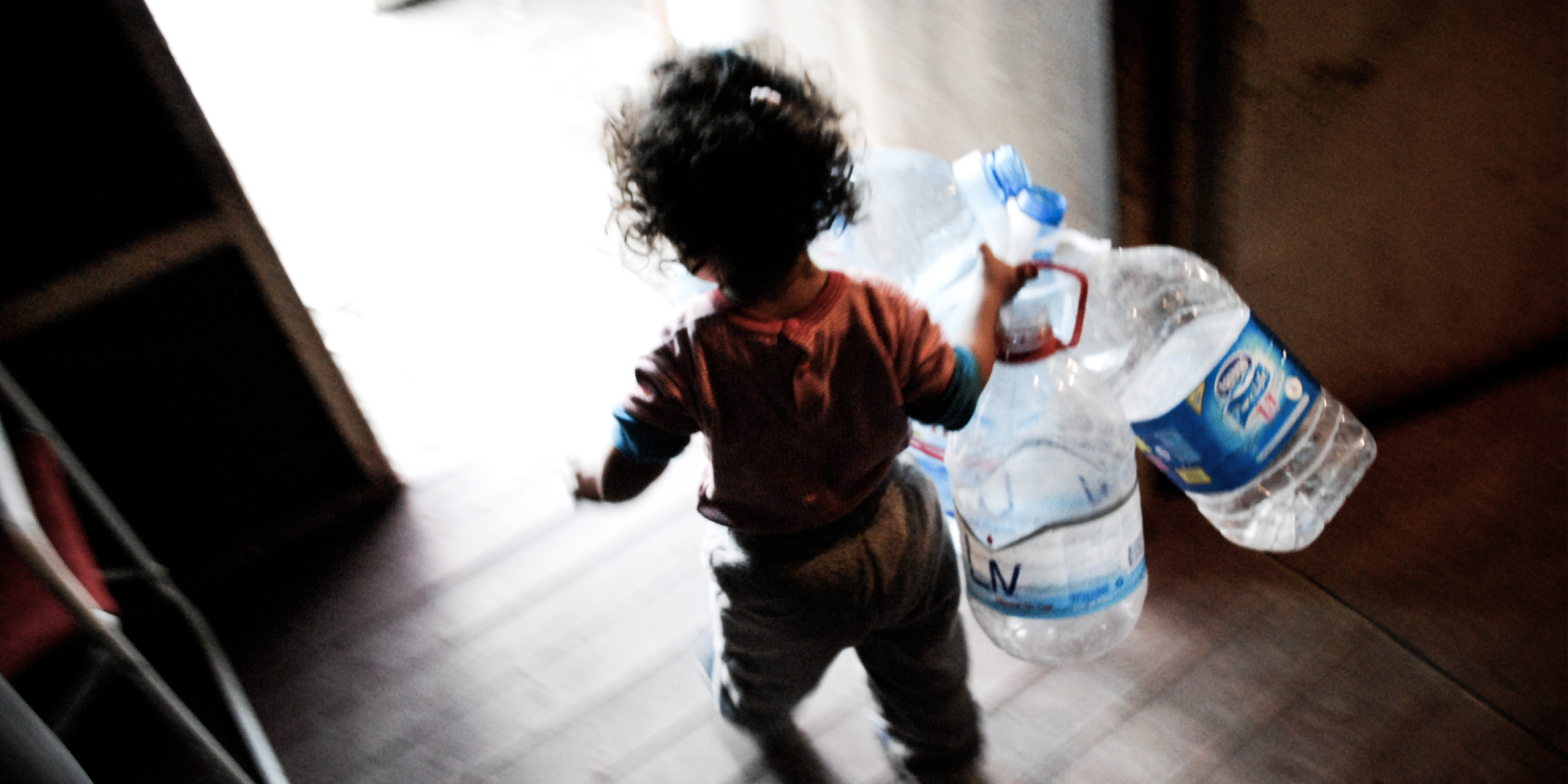
Fall 2009
Through the collaboration between Designmatters at Art Center College of Design and Latin American NGO, Un Techo para mi País, The Safe Agua Project addresses the quotidian challenges of safe water access for Chile’s poorest families living in slum developments (or campamentos) on the outskirts of Santiago.
Rosita, the community leader of Campamento San Jose, shared with us the impressions that our team had made with each one of the families in the campamento. What she shared was extraordinary – how the students visits with the families were therapeutic and milagroso… Perhaps the impact partly came from our students taking the time to really listen and care about what each family had to say.
– Penny Herscovitch, Faculty, Environmental Design
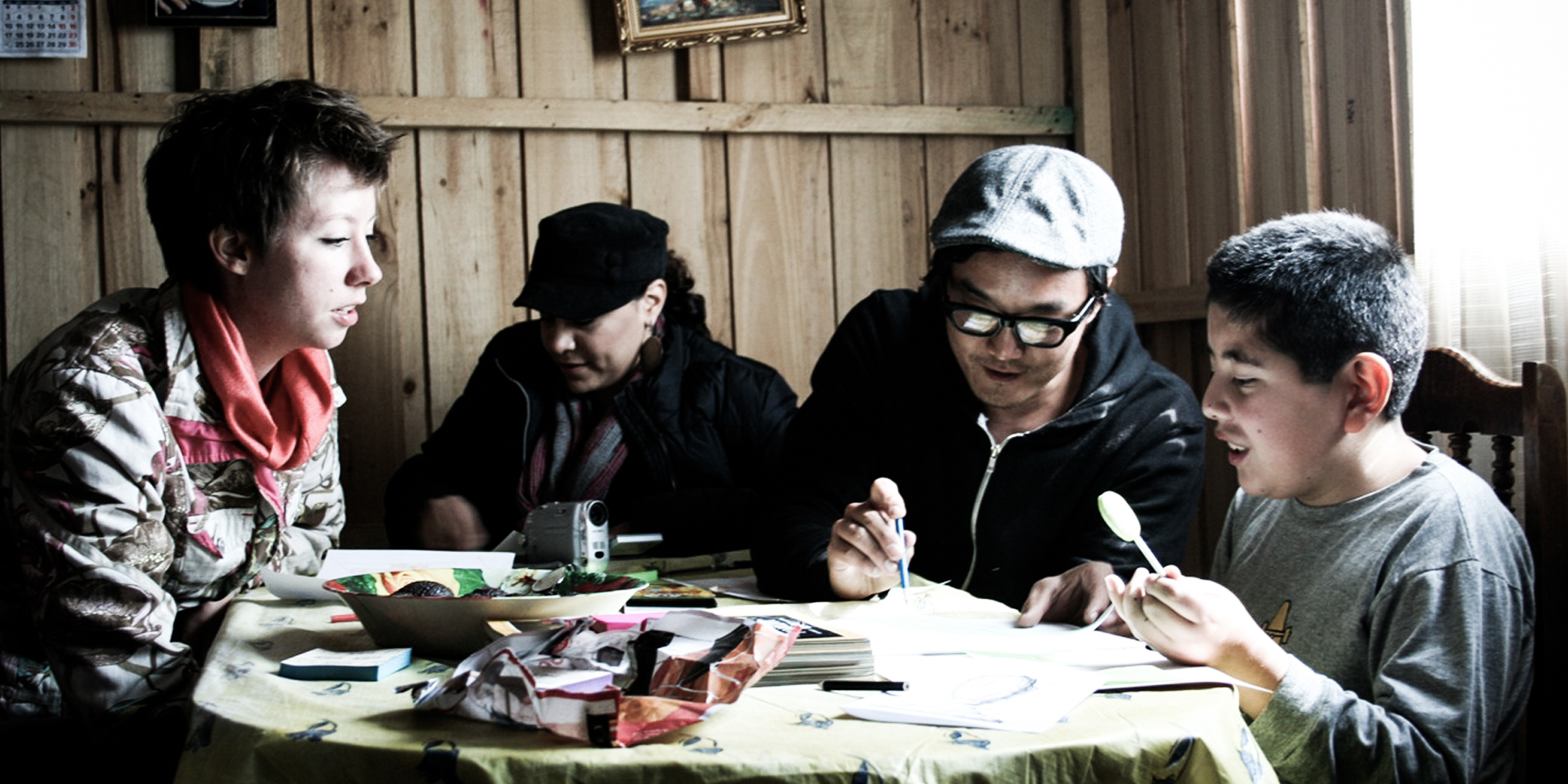
Research and Project Development
This TDS class started two weeks prior of the term with an immersion and co-participatory design research coordinated by Techo with the families affected by the challenges of daily life in Santiago’s campamentos.
After returning from Chile, students formed six teams to design and fabricating low-cost, innovative prototypes and systems intended to solve specific water-related needs identified through the field research. After initial organization of the research and analysis of the field findings, the conceptual and design development phase of the project was a participatory endeavor that included key feedback and sessions with the Techo team in California, and review sessions via Skype remotely to include the feedback of the stakeholders of the project, the twenty families from the campamento San Jose.
Project Solutions
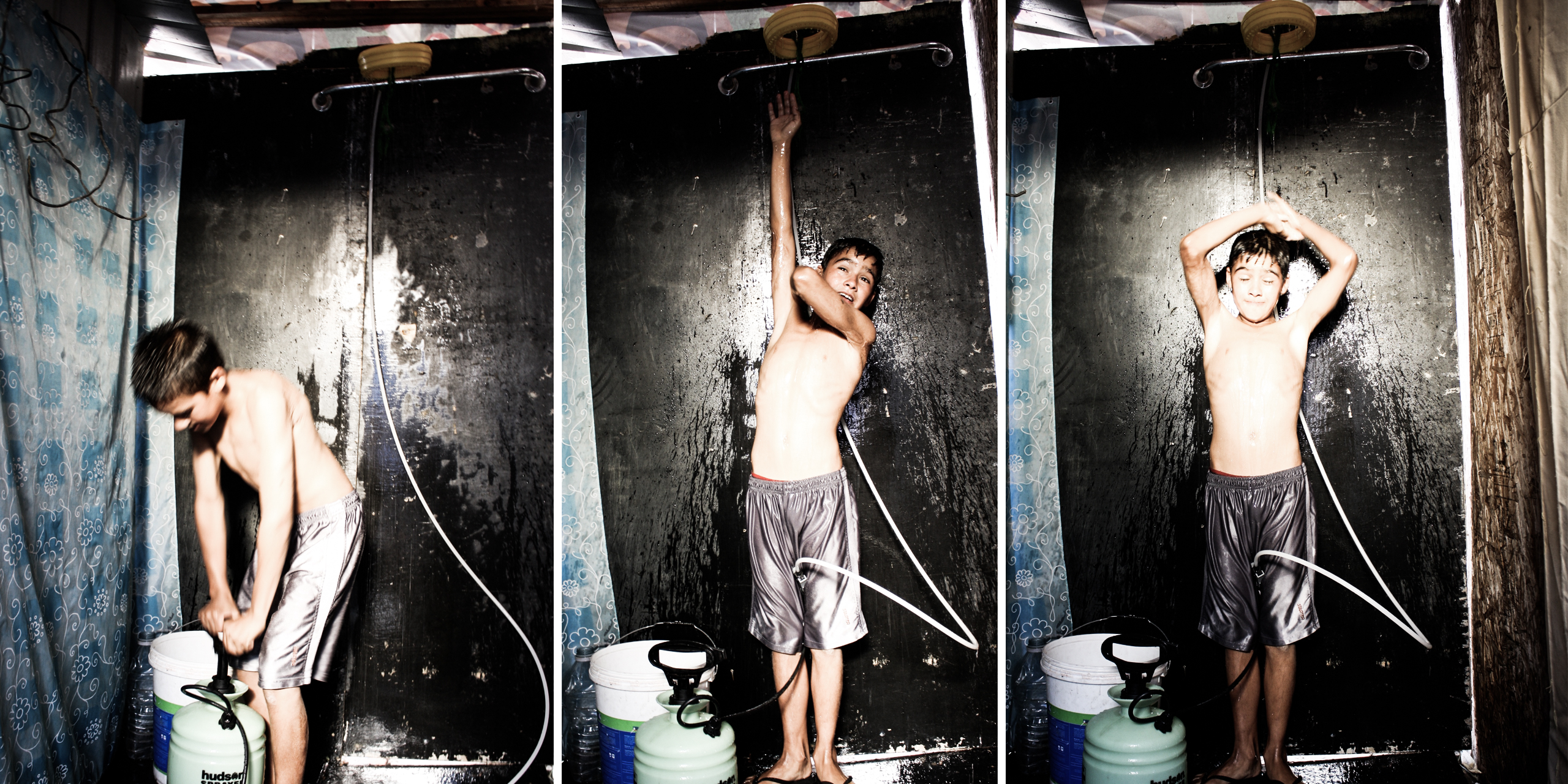 close
close
Ducha Halo
Read moreNarbeh Dereghishian (PROD) & Jessica Yeh (ENV)
Ducha Halo brings the dignity and well-being of a hot shower to people living with no running water and inconsistent electricity. Living in California, we have the privilege of enjoying a hot shower. At the turn of a knob we are instantly more relaxed, and for those few minutes, our worries are washed away. Yet over a billion people go each day without convenient access to a proper shower. In Chile’s campamentos, most families resort to bathing by parts: they fill up a bucket with a mixture of boiling and cold water, and use a small container to rinse themselves part-by-part. This process is time-consuming, cumbersome, requires several steps, and can cause physical strain and illness. Ducha Halo brings the dignity and well-being of a hot shower to people living with no running water and inconsistent electricity. Ducha Halo’s 6-liter metal container (with an analog temperature sensor) is easy to heat on the stove, reducing preparation time and physical strain. Two minutes of hand pumping yields a fifteen-minute hot shower, which flows in a refreshing generous stream from a cheerful plastic showerhead.
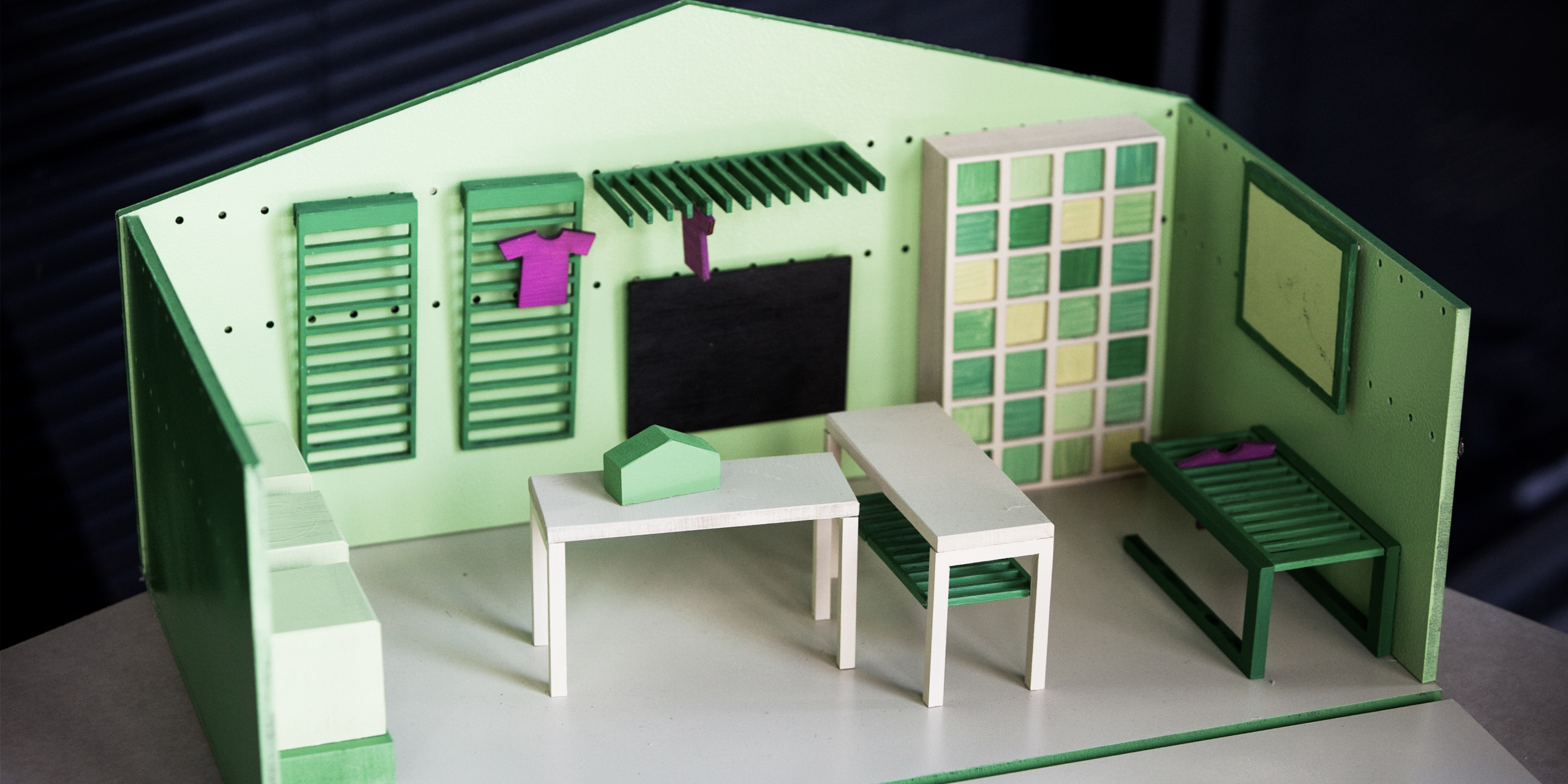 close
close
MiLa
Read moreStephanie Stalker (ENV)
Una Lavandería Comunitaria is a community laundry facility that aims to save time and effort, reduce task-related injuries, build social relationships and create income opportunities for women. Mila is more than just a space to do laundry; it’s a gathering space for the entire community. It became apparent early in our research that laundry is the household task that requires the most effort, time and energy. Women in the campamentos spend six to twelve hours washing clothes on laundry day, and laundry day is repeated 2-3 times a week. The twenty families living in campamento San José collectively spend over 500 hours a week on laundry. Without running water, doing laundry by hand or repeatedly scooping water into often-broken machines, not only takes time, but also causes task-related injuries such as swollen joints, carpal tunnel, and back problems. During winter, washing clothes outside in the cold and hanging clothes to dry in the home can lead to pneumonia in both women and kids. By providing access to efficient, functioning washers and dryers, a community laundry facility saves time and effort, and reduces task-related injuries and illness. Moreover, a shared laundry facility affords the opportunity to build community relationships and provides income-generating opportunities for women. The shared facility has the potential to become an important collaborative space for the community, housing a space for children, classes, computers, gatherings, and community boards. This proposal includes a tool for community groups to collaboratively plan the space and a manual for running the facility. The proposed business model incorporates two tiers: micro-loans for individuals in social housing (casa definitiva) to finance, own and operate the lavandería in their home; and a corporate sponsorship to establish a community lavandería facility in the campamento. Mila is more than just a space to do laundry, it’s a gathering space for the entire community.
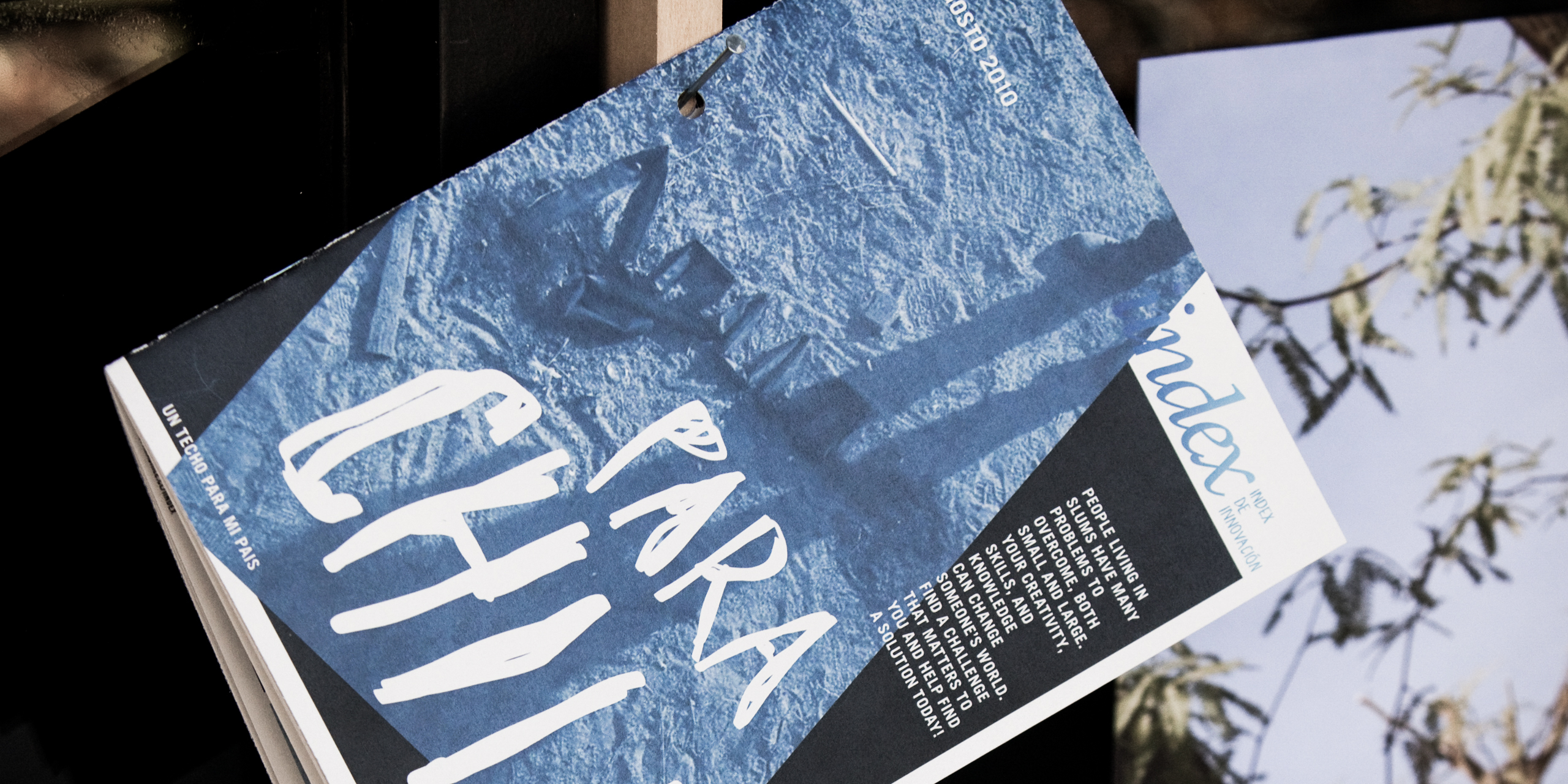 close
close
Índex de Innovación
Read moreRamon Coronado (GPX) & William Tang (PROD)
A strategy for sharing and inspiring social innovation by people in the campamentos, via a monthly publication, competition, and online information hub. People living in the campamentos come up with extraordinarily innovative solutions to everyday problems, using and re-using minimal resources in ingenious ways. Ideas range from decorative table and wall coverings made from re-purposed posters, to functional taps made from coke bottles, to efficient storage systems made from scrap wood. Some of these DIY solutions are shared, but most people are not aware of the useful inventions created by their neighbors or campamento dwellers in other parts of the country. Índex de Innovación enables people in the campamentos to share and learn from each other’s innovative solutions. To kick off the Índex, an innovation contest will inspire people, build community, and gather ideas from campamentos across Chile and Latin America. The winners’ ideas will be showcased in media such as exhibitions, publications and posters. The ideas generated by the contest, along with tips and instruction manuals will be distributed in a monthly newspaper, and cataloged in a complete online information hub. Índex de Innovación empowers people in the campamentos to become innovators and to improve quality of life for people in their own communities and beyond.
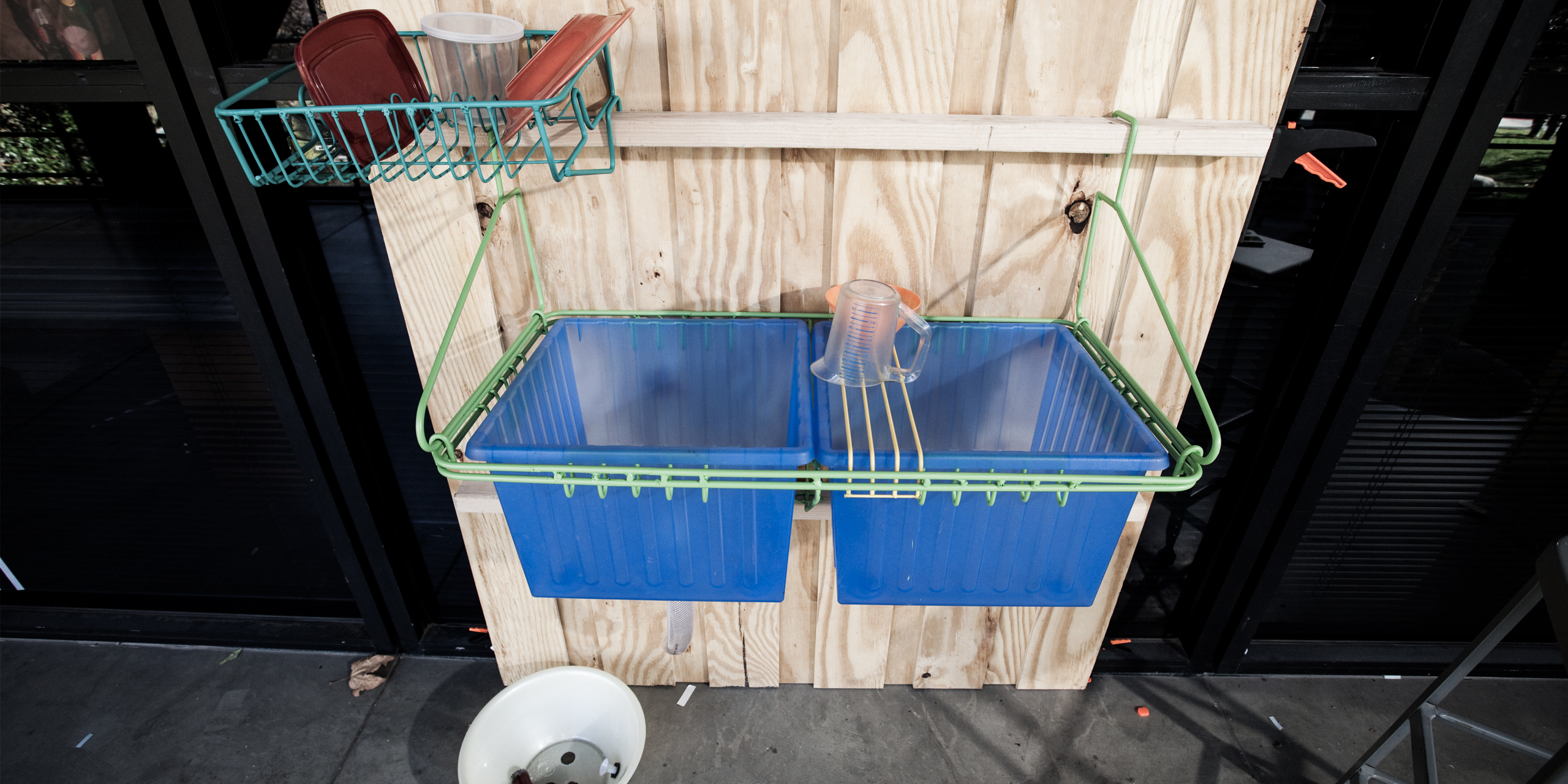 close
close
reLAVA
Read moreJacqueline Black (PROD) & Kyung Cho (PROD)
An inexpensive and efficient kitchen workstation for washing dishes indoors and facilitating the re-use of water. “I don’t like to do the dishes in front of the house because I don’t want people to see me.” – Maria Washing dishes in the campamentos is an arduous task. Maria uses two plastic buckets on top of a surface outdoors to soap and rinse dishes. Without access to running water and drainage, the simple act of washing dishes requires numerous steps, carrying and moving water by hand to complete the task. Without a fixed workstation, women often wash dishes on the floor, in unsanitary conditions, or outdoors subject to the weather. reLAVA is a sink workstation that makes washing dishes more efficient, sanitary and dignified. reLAVAcombines soaking, rinsing, cleaning and drying stations to into one inexpensive product. A wire frame folds down to pack flat, and is easy to install without any tools. The wire frame holds plastic wash and rinse basins, which drain through a hose to facilitate the reuse of gray water. This solution exemplifies Techo’s ‘Minimo’ ethos – to create maximal impact with minimum resources.
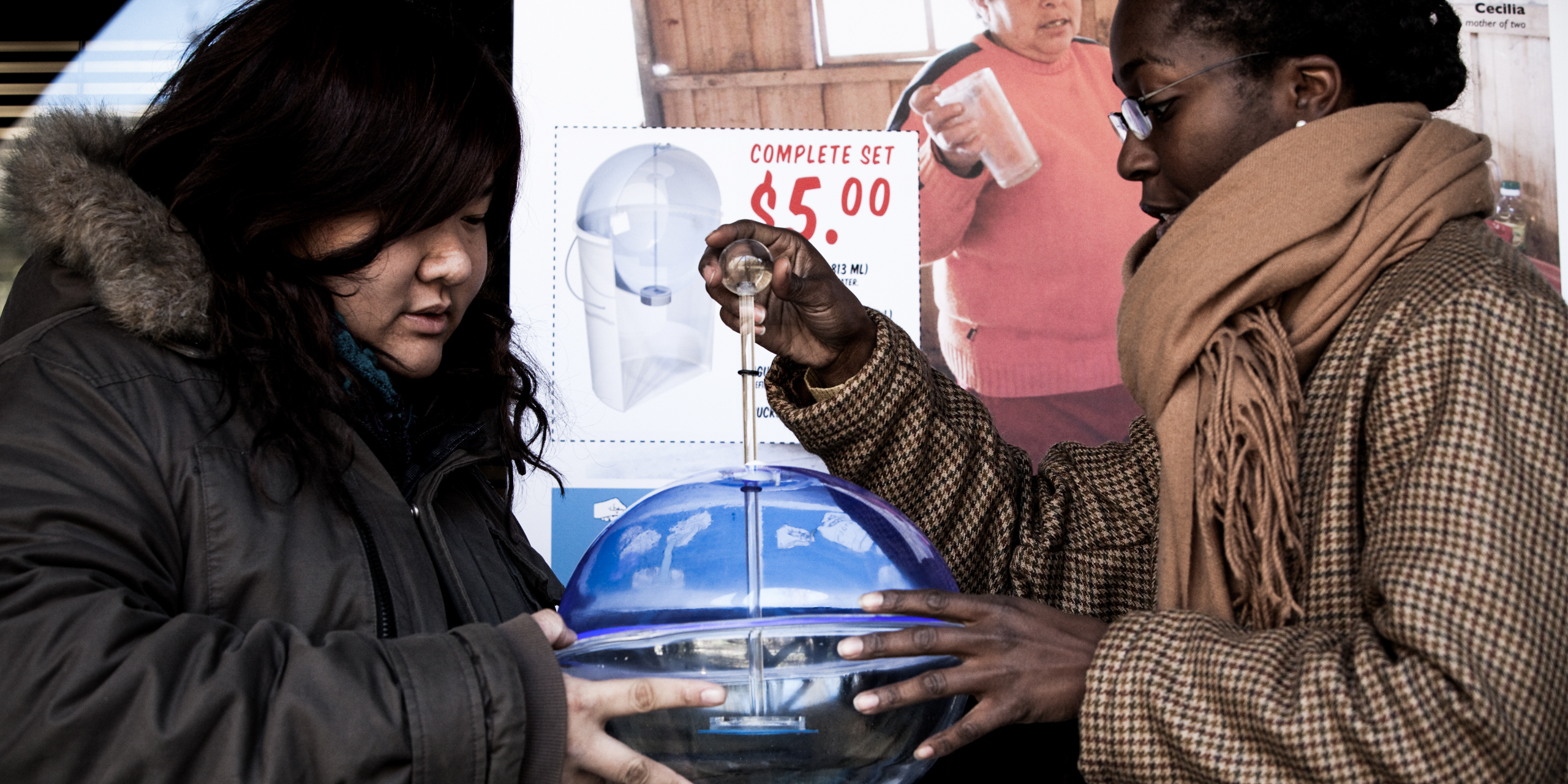 close
close
Agua Segura
Read moreElizabeth Bayne (GRAD FILM) & Erica Li (ENV)
Agua Segura A family-sized kit for water chlorination and filtration, to ensure safe, easy, pure water for drinking and cooking. Our team’s challenge is to address the issue of safe drinking and cooking water to prevent disease. Water treatment has been tackled in many different ways, by many different groups, but the challenge was in solving it in the context of the campamentos in Santiago, Chile. We found that existing solutions for subsistence conditions weren’t quite appropriate, as residents had access to municipal water. But high-end solutions used in developed urban areas also didn’t fit due to a lack of infrastructure and running water. We had to design a water treatment product for people in the middle: people who have infrequent access to water and store it for several days at a time. How do campamento residents currently treat water that may have been contaminated en route to the mediagua home or during storage? Either by boiling or adding chlorine; however, these treatment methods are used infrequently, if at all. Boiling takes time and energy. Measuring chlorine accurately is difficult and inconvenient. Agua Segura is an easy-to-use purification and filtration kit that fits onto any standard bucket. Chlorine is already part of the families’ daily cleaning routine, and Agua Segura’s built-in measuring device makes it easy and fast to accurately chlorinate water at the point-of-use. A filter pack of activated carbon (produced through local sustainable business models) removes potentially harmful chlorine byproducts, and improves the odor and taste. Agua Segura’s design inspires confidence, and promotes safe and accurate water treatment.
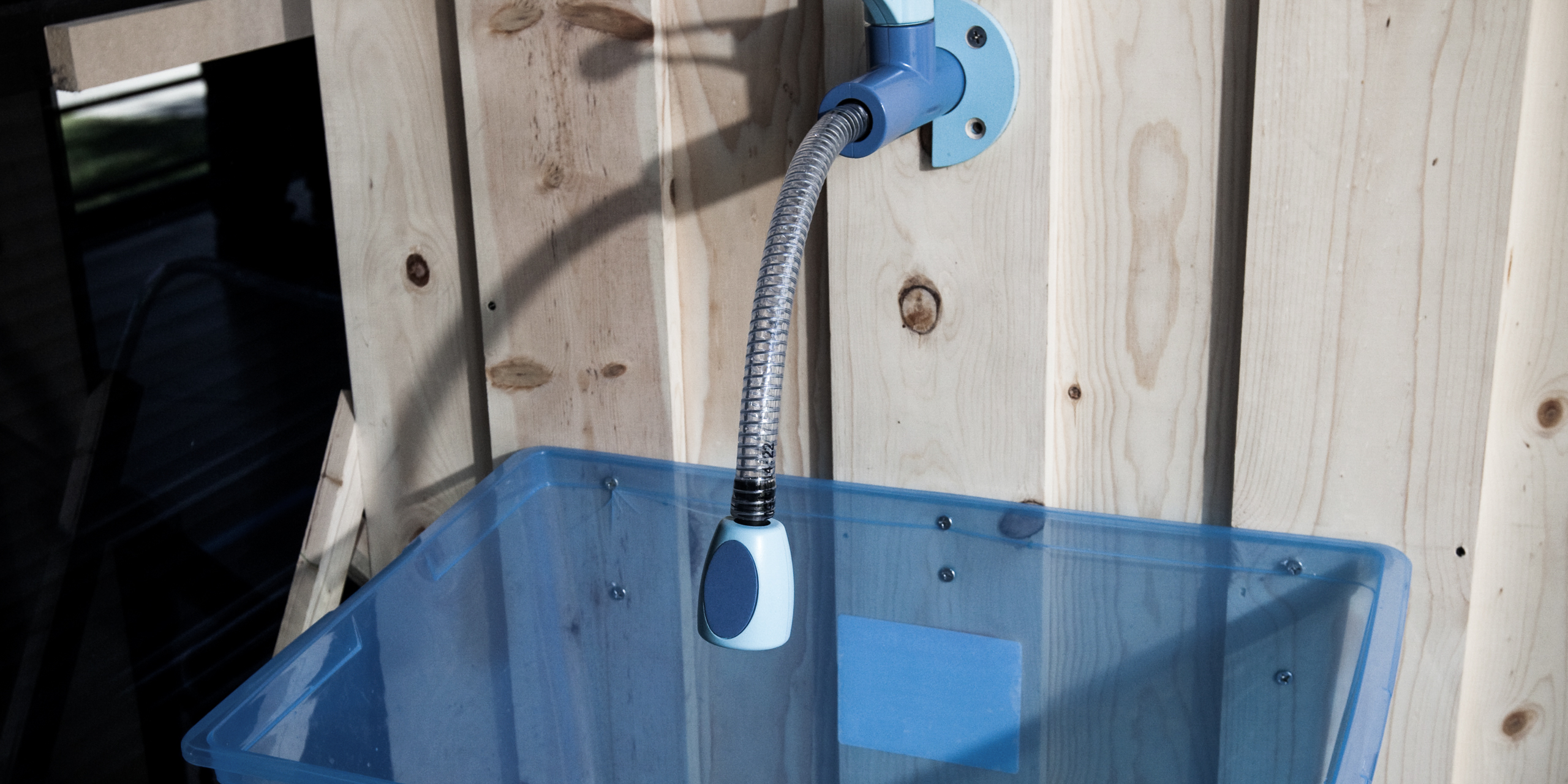 close
close
Gota a Gota
Read moreStella Hernandez-Salazar (ENV), Nubia Mercado Ramirez (TRANS), Diane Jie Wei (PROD)
A system that harnesses gravity to afford families the ease, convenience, and dignity of turning on a tap to get running water. “If I had the money I’d buy a tap to simulate running water” - Maria Many of us take it for granted that water flows from the tap at the turn of a handle; but for people living in the campamentos, running water remains a dream. Without access to running water in their homes, people must carry large quantities of water from outdoor storage containers for daily tasks, such as laundry, washing dishes, cooking and cleaning. Carrying water from bucket to bucket to bucket throughout the home requires tremendous effort, energy and time. This burden impacts health and well-being, especially for women, who often the ones responsible for managing water to care for their families. Through our research into pressurized water systems, we found that harnessing gravity is the most efficient and affordable way to bring running water to different parts of the home, to alleviate the burden of moving large quantities of water by hand. While a few families in the campamento have built gravity fed systems, but technical and financial barriers to installing these systems remain. Gota a Gota (‘Drop by Drop’) affords families the ease, convenience, and dignity of turning on a tap to get running water. This easy-to-install gravity-fed system combines three components: 1. a foot pump designed for ease of use by women, kids and the elderly elevates water to an exterior storage tank, which sits atop a self-constructed wooden platform; 2. water then flows through a hose to an ergonomic faucet with a convenient clip for tasks performed outdoors, such as laundry; 3. another hose leads into an indoor faucet with a flexible nozzle and easy on-off handle. Gota a Gota’s design helps make the dream of running water a reality.
Implementation Phase
Safe Agua demonstrates the immense potential for responsible design to generate social, cultural and economic change.
Prototypes of Ducha Halo and reLAVA have been successfully field-tested with the families of the Campamentos that Techo serves. The Innovation team of Techo is currently working with government and corporate partners to scale these solutions. After an 8.8-magnitude earthquake struck Chile in February 2010, the need for emergency relief products like the Safe Agua projects became all the more acute, as the quake severely damaged more than 500,000 homes, affecting 1.5 million people. Immediately after the earthquake hit, Techo was named the official NGO for reconstruction and has pushed forward to manufacture and test refined prototypes, in order to bring them to families who had lost their homes in the earthquake. In addition, Ten Mila Laundry Community Center’s were built in Partnership with Unilever.
Safe Agua Book
-
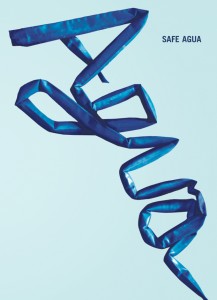
-
The Safe Agua Book
This book captures a groundbreaking collaboration with the Chilean-based NGO, Un Techo Para Mi Pais, focusing on water innovation solutions for slum dwellers in Chile.
Published by Designmatters
Download PDF
Methodology Cards
-
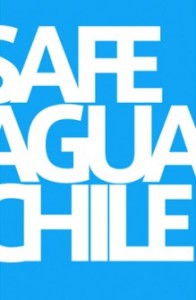
-
Safe Agua Chile Methodology Cards
Download PDF
Awards
-
2012 WINNER
Design Ignites Change Awards
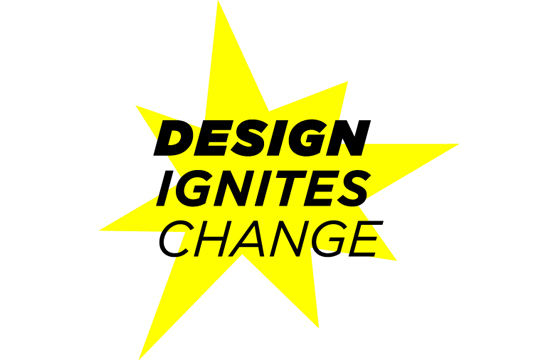
-
2011 WINNER
Core 77 Design Awards
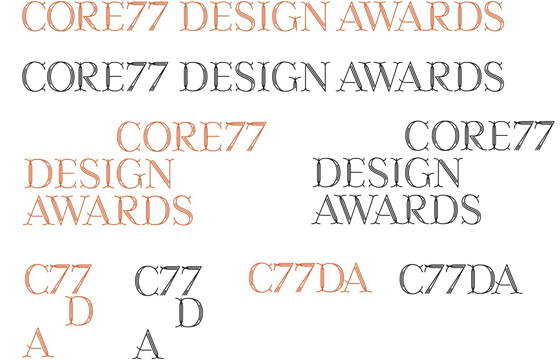
-
2011 WINNER
ICSID World Design Impact Prize
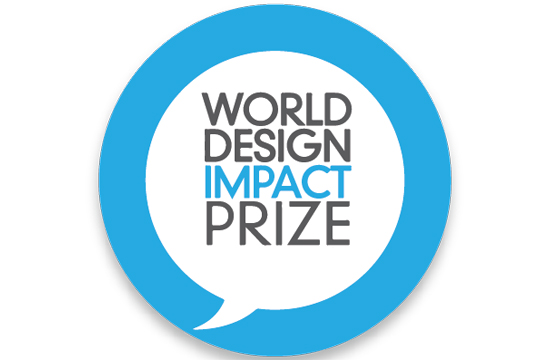
-
2011 WINNER
AIGA 365: Design Effectiveness Award
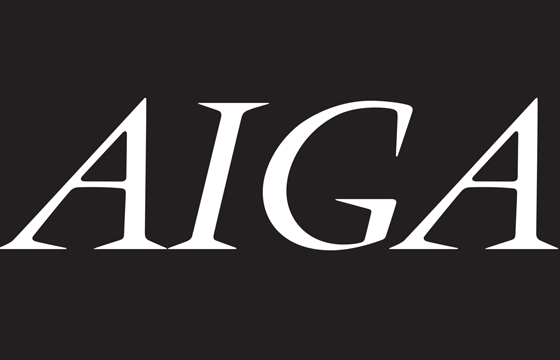
-
2011 WINNER
Industrial Designers Society of America (IDSA) International Design Excellence Award (IDEA)
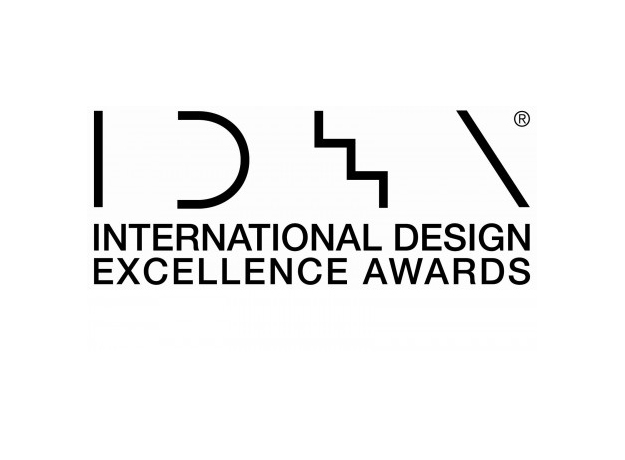
-
2011 WINNER
Art Directors Club Award
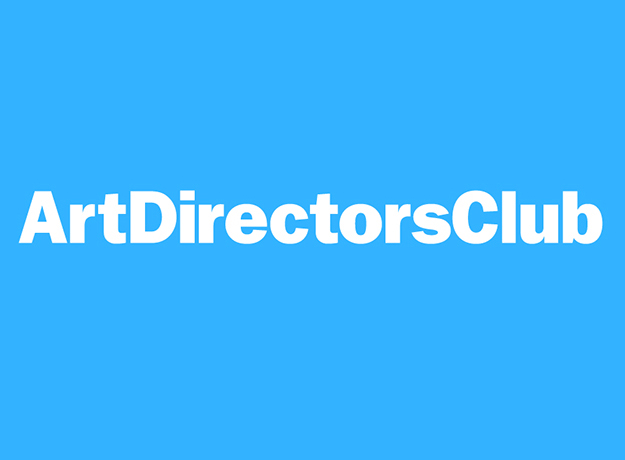
-
2010 WINNER
Spark Award
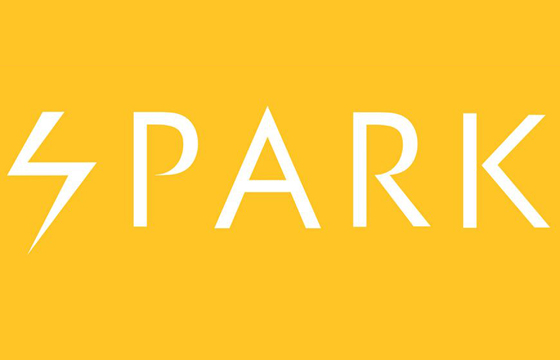
Safe Agua Featured at 2011 Design with the Other 90% Exhibition
Project Publicity
- Design with the Other 90% documentary series, Smithsonian Channel (Nov 2011)
- Low Costs and Considerable Gains, Sci. Mag (Nov 2011)
- A Household Shower From Hardware-Store Staples (NY Times, Sept 2011)
- Thinking Beyond Boundaries: Art Center’s DM program (May 2011)
- Can Schools Teach Designers how to Solve the World’s Problems? (Good Mag, March 2011)
- Be the change, save a life (An ABC News initiative, March 2011)
- Le Design Social n’est Pas Si Simple (Oct 2010)
- Safe Agua Project (Oct 2010)
- Ducha Halo and Re-Lava featured in Soluciones en la emergencia (Qvid, April 19, 2010)
- Ducha Halo Wins 4th Bodies in Space Award (March 2010)
- The First Drop to a Life-Changing Story: Safe Agua Chile (Dec 2009)
- Six Solutions for Saving Water and Saving Lives (Dec 2009)
- After Shelter, Water (Despues del Techo, Agua) (Sept 2009)
- Gota a gota: La lucha por El Agua en un Campamento (Sept 2009)
- US Design Schol Teams Up with “Un Techo Para Chile” (Sept 2009)
- Safe Agua Highlight (Sept 2009)
- Escuela que Disena Ferraris Alivia la Falta de Agua en Campamentos (Sept 2009)
